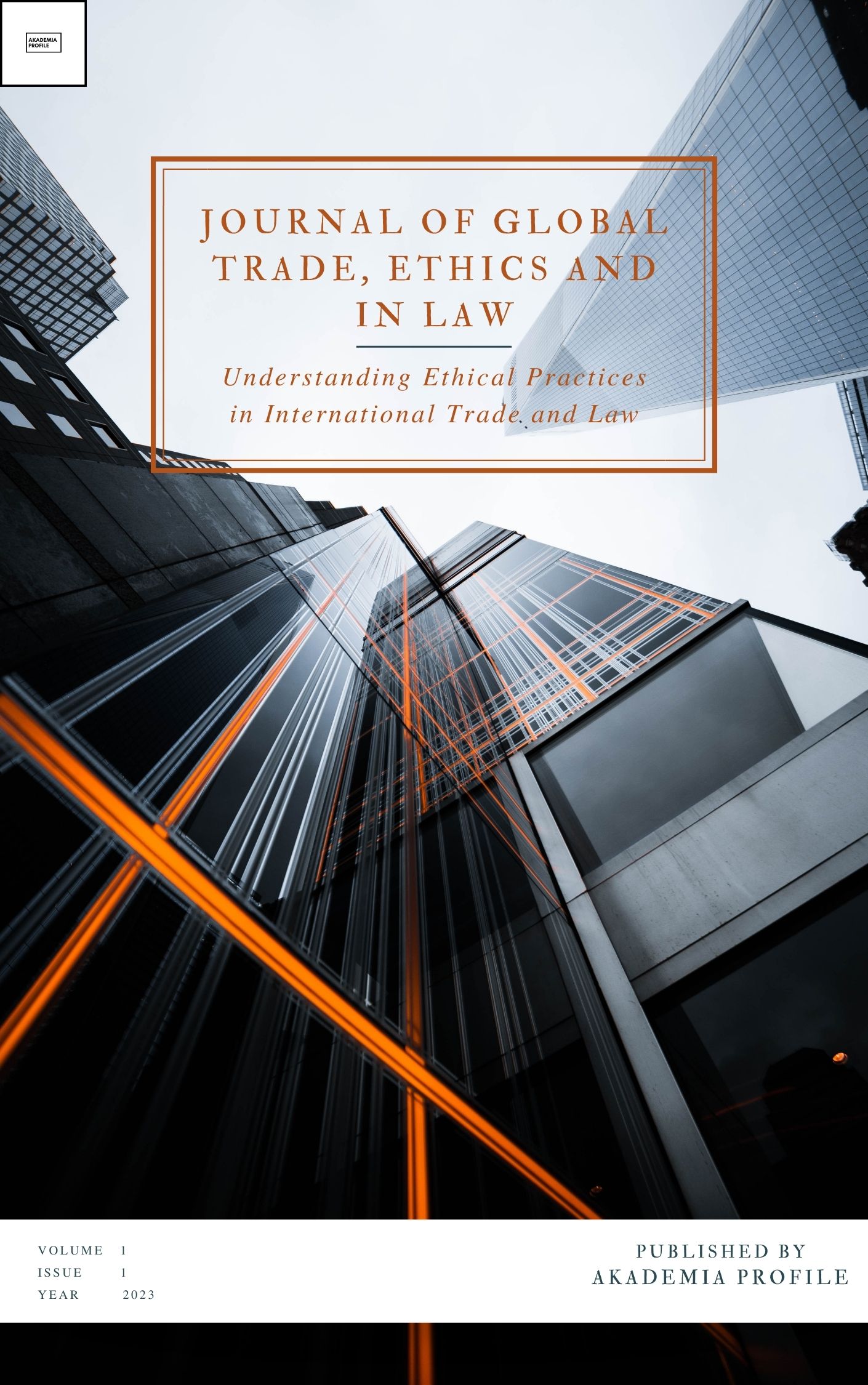
Published 2023-04-12
Keywords
- Trade Openness,
- ARDL,
- GDPPC,
- Poverty
Copyright (c) 2023 Journal of Global Trade, Ethics and Law

This work is licensed under a Creative Commons Attribution 4.0 International License.
How to Cite
Abstract
This study looked at the effects of trade liberation on reducing poverty in Nigeria. To investigate the data properties, a number of tests were run, including co-integration, the unit-root test, and descriptive statistics. The Auto-Regressive Distributed Lag (ARDL) method was used in this study to examine the variables' short-run and long-run effects. The outcome demonstrated that trade is statistically important in determining Nigeria's poverty rate over the long and short runs. However, a country's economic system's potential to gain from economic globalization also depended on its domestic macroeconomic policy, market structure, early economic state, institutional quality, and degree of political stability. According to the predicted outcome, trade will benefit the poor in the long run. On the basis of the study's findings, suggestions are given to promote trade and lower the rate of poverty in Nigeria. To save the domestic market, Nigeria may implement a restrictive trade liberalization strategy. In contrast, the government should encourage the import of technology to advance domestic industry and adopt a soft trade liberalization policy that is based on the elimination or reduction of barriers to international commerce in technology.
